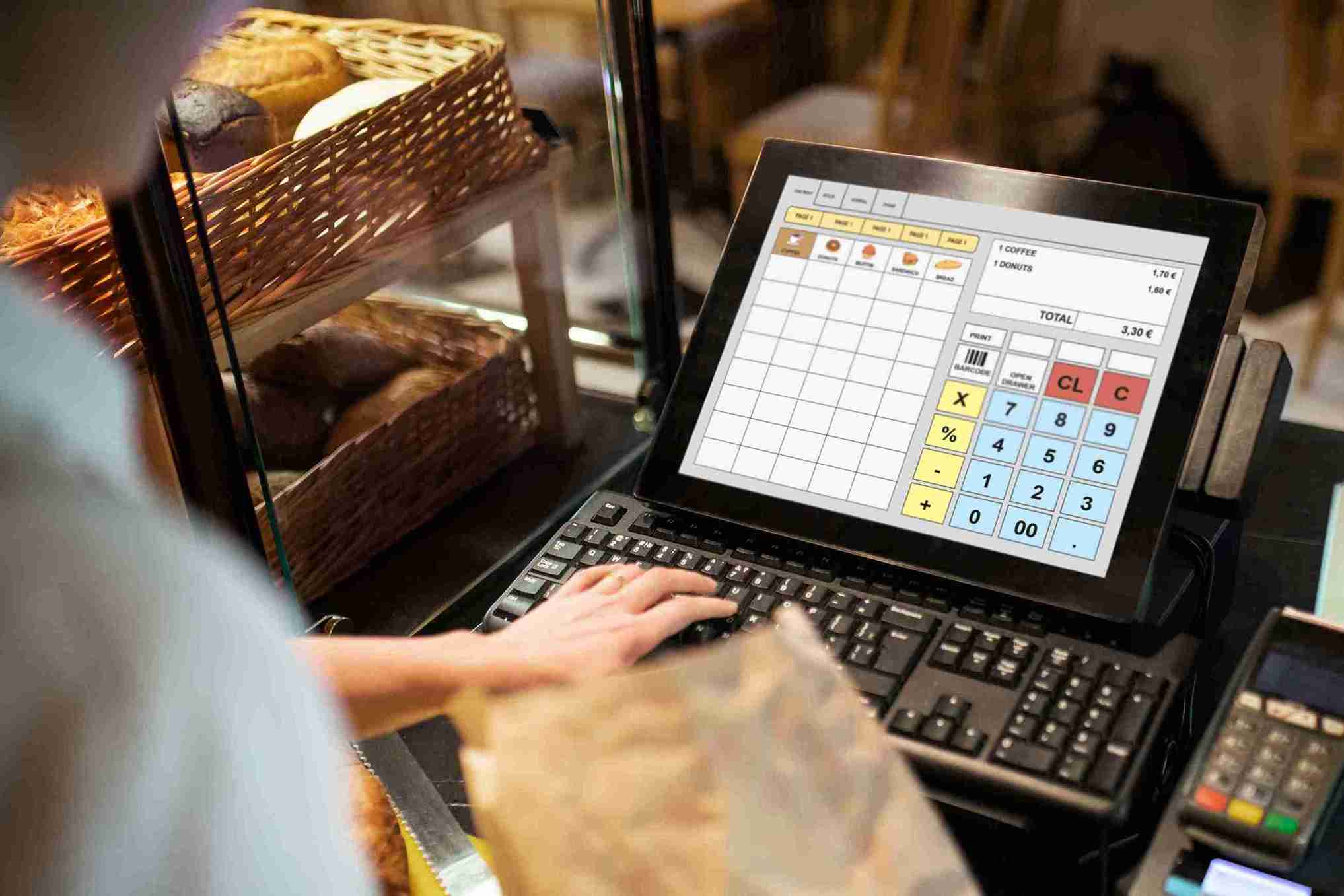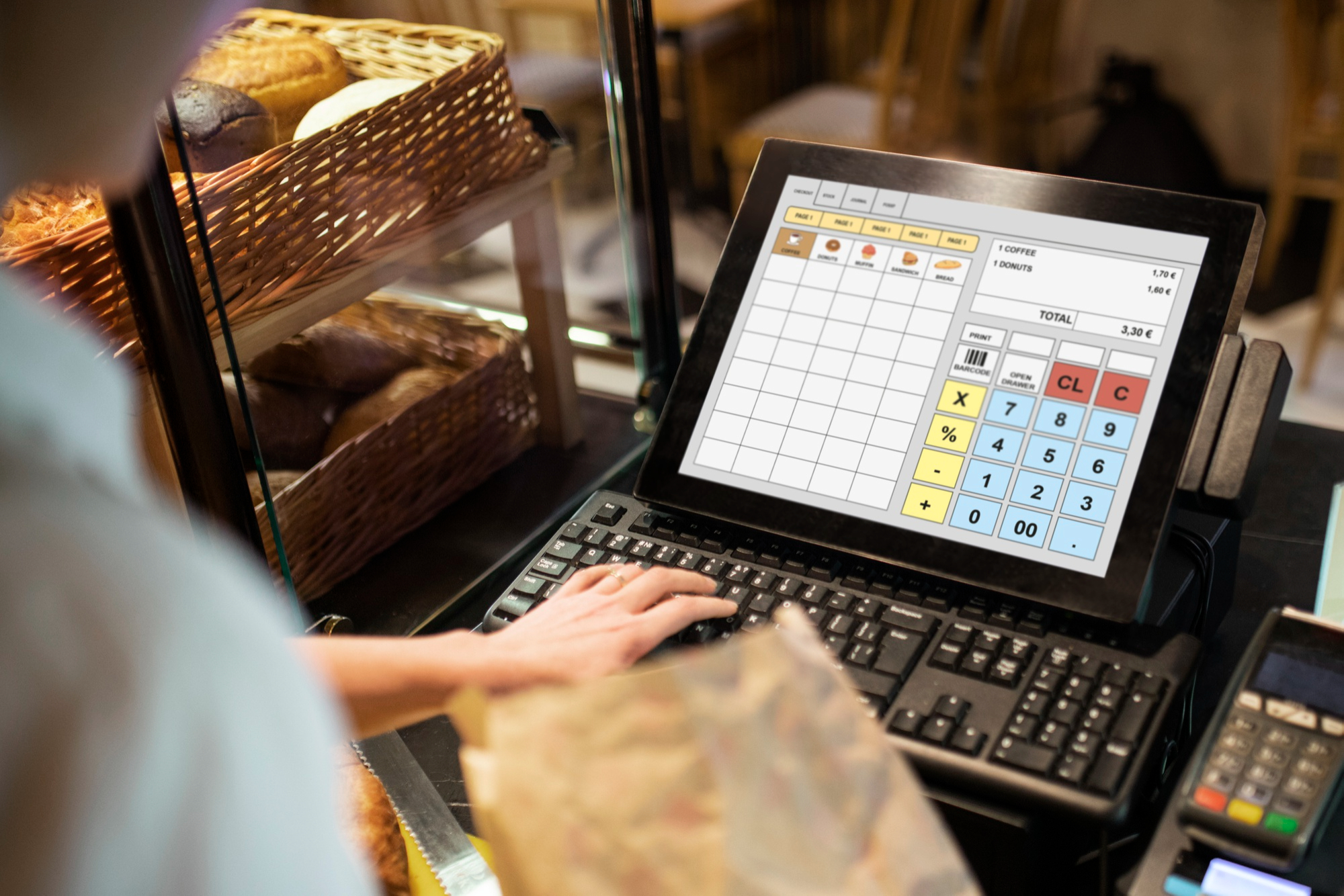 SHARE
SHARE
Cash Register vs. Point of Sales (POS): What’s the Difference?
Sovia
Every business transaction is a step forward toward growth. In the past, conventional cash registers were the go-to solution for recording sales.
Now, Point of Sales (POS) systems are gradually replacing them with more modern features.
But which one is more suitable for your business? A cash register or a POS system? The right choice can boost productivity and enhance the customer experience.
In this article, we will explore the advantages and differences between both systems. Let’s find out which one is the best fit for your business!
What Is a Cash Register?
A cash register is an essential tool in retail businesses that helps record sales and manage transactions more efficiently.
Since its invention in 1879, the cash register has continuously evolved to meet the increasing complexity of business needs.
In the past, cash registers operated manually. Employees had to input transaction data one by one.
When the "total" button was pressed, the cash drawer would open, and a bell would ring to notify the manager of a transaction. However, early cash registers could not print receipts for customers.
By the 1970s, innovations began to emerge. Cash registers were now equipped with receipt printers, barcode scanners, cash drawers, and an “NS” (No Sale) button. These advancements made transactions faster and more accurate.
Today, cash registers come in various forms, including compact mini cash registers for small businesses and Android-based cash registers that integrate with various business applications. With this technology, sales recording becomes easier, more transparent, and more reliable.
For both small and large businesses, choosing the right cash register can help improve operational efficiency. A cash register is not just a transaction tool, it is also a solution for optimizing business management.
Read more: This Is Why Restaurant POS Applications Are Important for Culinary Business Growth
What Is a Point of Sales (POS) System?
Source: freepik.com
Imagine you own a store that is always crowded with customers. Every day, transactions take place, from payments and inventory tracking to financial reporting.
Managing everything manually would be exhausting and prone to errors. This is where the Point of Sales (POS) system comes in as an intelligent solution to optimize business operations.
A Point of Sales (POS) system is a computerized system that integrates both software and hardware to help businesses record sales, manage inventory, and generate financial reports automatically.
Unlike conventional cash registers, which are still manual, POS systems offer more advanced and efficient features, making each transaction faster, more accurate, and seamlessly integrated.
POS systems are not only used in retail and restaurants but also by manufacturing companies and trading businesses to ensure that every transaction is well-documented and inventory is always monitored.
With a POS system, there is no need to manually count stock or print invoices the old-fashioned way. Everything can be done automatically, saving time and effort.
Additionally, POS systems simplify debt and receivable tracking over days or months. All data is securely stored and can be accessed anytime. With this technology, businesses can grow faster, operate more efficiently, and build stronger customer trust.
Differences Between a Cash Register and a Point of Sales (POS) System
In today’s business era, operational efficiency is the key to success. For store owners, choosing between a cash register and a POS system is not just about the price but also about business growth.
While cash registers are a more economical choice, their limitations can hinder business expansion.
On the other hand, POS systems offer more than just transaction recording; they provide inventory management, sales reporting, and broader business integration.
Understanding these differences will help you determine the best option based on your business needs.
Here is a summary of the differences between a cash register and a POS system:
Read more: What is A Point of Sales (POS) and Its Benefits for Culinary Business
Conclusion
When choosing between a cash register and a POS system, consider your business needs and budget. If your business is still in the early stages and has simple transactions, a cash register may be a more economical choice.
However, if you want to improve efficiency and accelerate business growth, a POS system is the best solution.
For those in the food and beverage industry, ESB offers the perfect solution through ESB POS and ESB POSLite.
Designed with comprehensive features, seamless integration, and real-time data access, ESB POS is ready to support your business growth.
With our experience in the industry, we believe ESB POS will help you achieve higher efficiency. Contact ESB now for a consultation and find the best solution for your business!
 SHARE
SHARE




